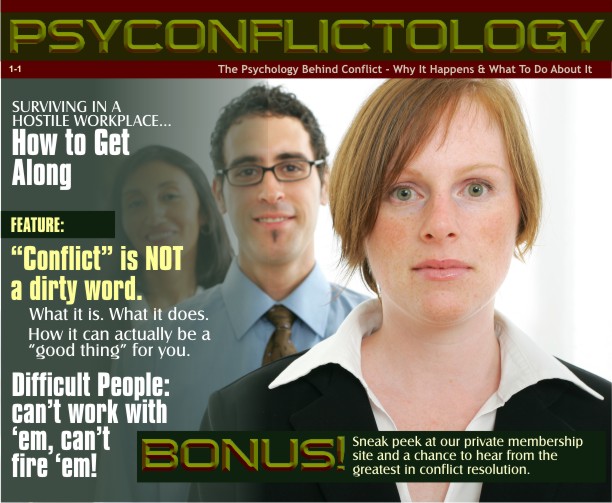| How to have a fair
argument |
- Start with the
idea that you want to resolve the problem, not win the
argument.
-
- No one can “win” an
argument.
- Begin in a friendly
way.
- Don’t attack.
-
- The more you push, the more the other person
is likely to push back
- Pick a good
time.
-
- Set an appointment if
possible.
- Avoid arguing late at night or in the early hours of
the morning.
- Don’t start when you know that one or the other has
to leave without adequate time to resolve the problem.
- Pick a good
place.
-
- Don’t do it in public.
- Don’t do it in front of other
people.
- Use the real
reason.
-
-
Make sure you understand your real
motivation.
-
Don’t disguise what you really want to talk
about.
-
Don’t make the other person
guess.
-
State your issue in clear
terms.
-
If you
are wrong, admit it as soon as you know it.
-
Use “I”
statements.
-
-
You might think
you can read their mind but you can’t.
-
Don’t drop or
dump a problem on the other person.
-
-
No physical
contact.
-
No swearing, obscenities or
name calling.
-
-
Only two
people argue; all outsiders do not join in.
-
-
Do not get friends, family members or
co-workers involved and taking sides.
-
Don’t send messages through third
parties.
-
-
When discussing something, set a policy where one
person talks first and the other is quiet and then the other person
talks.
-
Stay on the
subject.
-
-
Stay in the
present.
-
-
Do not assume, guess, imagine, take for
granted, theorize, surmise or speculate.
-
-
Say what you think and
feel.
-
Don't assume the other knows what you feel,
want, need, or what you mean.
-
Don’t act
superior.
-
-
Don’t belittle the other person's
accomplishments.
-
It’s not useful to try to make the other
person feel small.
-
Build them up so that they can more easily
give in to your point of view.
-
No
manipulating.
-
Give each other the right to change
their mind.
-
No criticizing or
humiliating.
-
-
No
putting undo pressure on the other.
-
-
No
ranting and raving.
-
-
Don’t make one
feel guilty (no guilt trips).
-
No
martyrdom.
-
-
No humor or
laughing.
|
|
| Conflict Resolution
eNews |
|
|

|
|
|
|
"Your course on confict resolution and
website is fantastic. This course and material has already helped me to look for ways to work
with my staff to get the best productivity out of them and get through the conflicts that
arise. It is so easy to use this information right away. I don't have to take weeks or months
to put it together. I love it. Thank you."
-- Mike Green, MI
|
|
|
"Very illuminating, and really clarified some
observations I had made recently about how very differently individuals with whom I have worked
have responded to identical approaches. Some very powerful tools for
management."
-- Sandra Graham, DC
|
|
|
"My whole department attended, and it was
enlightening to see how my coworkers classifed themselves in the matrix because it was quite
different than how I perceived them. The lessons and exercises Paul presented helped me a
lot with working through this. I think we will all work together better when we return to the
office."
-- Nora Everett, TX
|
|
|
"Fantastic speaker! Great topic! I learned so
much. In fact, the seminar was too short...I want to learn even more!"
-- Linda Louis, CA
|
|
|
"I found the idea of "systems" very
interesting. Paul did a great job of demonstrating and explaining his ideas. He kept it fast
and funny. Time just flew by. I've never learned in this kind of environment before, and it was
a great experience for me. I liked the experiential stuff too."
-- Will Clifford, CAL, AB
|
|
|
|
"Paul's presentations are enjoyable for those
attending. Participants are enthusiastic about Paul's workshops. His material is enlightening
and comprehensive. Because the program is experiential, people walk away with a greater
sense of understanding."
-- Chere Estrin, Ph.D., Estrin
LegalEd
|
|
|
"The highlight of the workshop for me was to
be with so many intelligent people from all different kinds of careers, and realize that we all
have the same problems. And Paul helped us come up with excellent strategies to solve them! The
interactive exercises were very meaningful to me."
-- Brenda Warner, FL
|
|
|
"You have to promise to bring him back! He
was fantastic!
-- Kathy Smith, Toastmasters International
Convention
|
|
|
"The most useful thing I learned today was
conflict resolution. I need this in multiple aspects of my life."
-- Fred Dunst, South Central PA Manufacturing
Association Seminar
|
|
|
"Excellent! This is useful in everyday life -
personal and professional. I especially liked the eye contact info."
-- Diane Beattie, Otis Elevator
Company
|
Click here for
more Comments.
|
